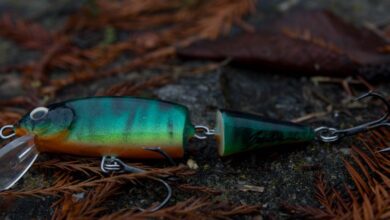How to Pick Sturdy Garden Fences
A garden fence serves as more than just a boundary; it is a shield, a statement, and sometimes even a work of art. Selecting a sturdy garden fence is crucial, especially if you aim to protect your plants from pests, establish privacy, or enhance your yard’s aesthetic appeal. With numerous options available, understanding your needs and the materials can make the decision process easier and more effective.
Consider Your Purpose
Before diving into material selection, clarify what you want to achieve with your garden fence. Are you aiming to keep out wildlife, such as deer and rabbits? Do you want to create a private space for relaxation? Or is it purely decorative? Your purpose will guide the height, material, and style of the fence. A fence meant to deter animals will typically need to be taller and sturdier than one intended for aesthetics.
Evaluate Material Options
When it comes to garden fences, the material plays a significant role in durability and appearance. Here are some popular choices:
Wood: A classic option, wooden fences can offer both beauty and strength. However, they require regular maintenance to resist rot and insect damage. Cedar and redwood are excellent choices due to their natural resistance to decay.
Vinyl: This low-maintenance option can mimic the look of wood while offering greater durability. Vinyl fences are resistant to weather, rot, and insects, making them an ideal choice for longevity. However, they can be more expensive upfront.
Metal: Options such as wrought iron or aluminum provide exceptional strength and durability. Metal fences create a sophisticated look and can be customized in various designs. However, they may require periodic painting or sealing to prevent rust.
Composite: Made from recycled wood and plastic, composite fences offer a blend of the best qualities of wood and vinyl. They resist fading, rotting, and warping, making them a fantastic long-term investment.
Assess Your Environment
The local climate and soil conditions should also influence your choice of garden fence. In areas with high winds, for instance, a taller wooden fence may require additional support to withstand the elements. Similarly, if your garden is located in a region with heavy snowfall, ensure the fence is robust enough to handle the weight. If you live near the coast, consider materials resistant to corrosion, like vinyl or aluminum.
Think About Installation
Sturdiness often begins with proper installation. Whether you opt for a DIY project or hire professionals, make sure to follow best practices for setting fence posts. Posts should be buried at least one-third of their height and set in concrete for maximum stability. If you’re unsure about the installation process, consulting with a professional can save you time and ensure durability.
Choose the Right Height and Style
The height of your fence will depend on your primary objective. If privacy is your goal, consider a fence that stands at least six feet tall. For pest control, a minimum height of four to five feet is usually sufficient. Style is equally important; a solid panel fence provides maximum privacy, while a picket fence allows for airflow and visibility. Choose a design that complements your garden and home while serving its intended purpose.
Budget Considerations
Your budget will ultimately shape your decision. While it’s tempting to go for the cheapest option, remember that a sturdy fence is an investment. Calculate not only the initial purchase price but also future maintenance costs. For example, while wood may be less expensive upfront, it often incurs higher maintenance expenses over time. Vinyl and metal options may have a higher initial cost but can save you money in the long run due to their durability.
Final Thoughts
Choosing a sturdy garden fence involves careful consideration of purpose, materials, environment, installation, height, and budget. By taking the time to evaluate these factors, you can select a fence that not only meets your needs but also enhances the beauty and functionality of your outdoor space. Whether it’s a rustic wooden barrier or a sleek vinyl design, the right fence can transform your garden into a sanctuary of peace and beauty. Happy fencing!







